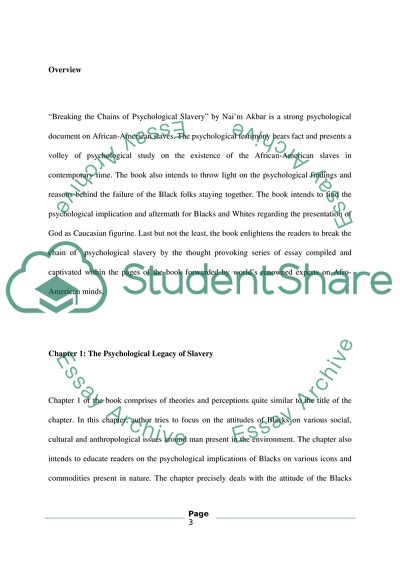Cite this document
(Breaking the Chains of Psychological Slavery Research Paper, n.d.)
Breaking the Chains of Psychological Slavery Research Paper. Retrieved from https://studentshare.org/psychology/1742292-breaking-the-chains-of-psychological-slavery
Breaking the Chains of Psychological Slavery Research Paper. Retrieved from https://studentshare.org/psychology/1742292-breaking-the-chains-of-psychological-slavery
(Breaking the Chains of Psychological Slavery Research Paper)
Breaking the Chains of Psychological Slavery Research Paper. https://studentshare.org/psychology/1742292-breaking-the-chains-of-psychological-slavery.
Breaking the Chains of Psychological Slavery Research Paper. https://studentshare.org/psychology/1742292-breaking-the-chains-of-psychological-slavery.
“Breaking the Chains of Psychological Slavery Research Paper”, n.d. https://studentshare.org/psychology/1742292-breaking-the-chains-of-psychological-slavery.


